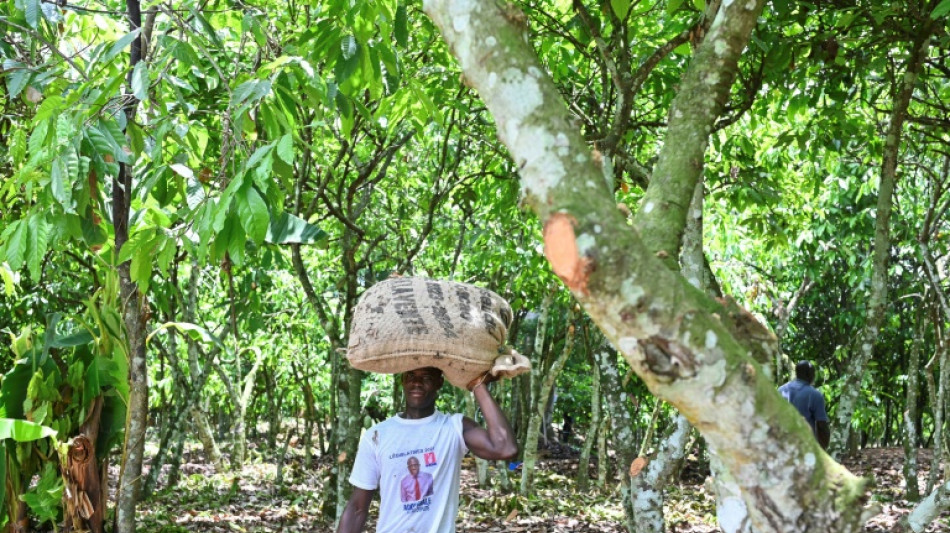
-
 Thunder NBA win streak at nine as Shai ties career high with 45
Thunder NBA win streak at nine as Shai ties career high with 45
-
India announces state funeral for ex-PM Manmohan Singh

-
 Japan govt approves record budget for ageing population, defence
Japan govt approves record budget for ageing population, defence
-
Japanese shares gain on weaker yen after Christmas break

-
 South Korea's acting president faces impeachment vote
South Korea's acting president faces impeachment vote
-
Fleeing Myanmar, Rohingya refugees recall horror of war

-
 Smith century puts Australia in control of 4th Test against India
Smith century puts Australia in control of 4th Test against India
-
Israeli strikes hit Yemen as Netanyahu fires warning

-
 Peru ex-official denies running Congress prostitution ring
Peru ex-official denies running Congress prostitution ring
-
Australia's Smith reaches 34th Test century

-
 NHL Red Wings fire Lalonde and name McLellan as head coach
NHL Red Wings fire Lalonde and name McLellan as head coach
-
Injured Halep withdraws from Australian Open

-
 Liverpool power seven points clear, Man Utd crash at Wolves
Liverpool power seven points clear, Man Utd crash at Wolves
-
Leaders Liverpool survive Leicester scare to go seven points clear

-
 Membership of UK's anti-immigration Reform party surpasses Conservatives
Membership of UK's anti-immigration Reform party surpasses Conservatives
-
Two dead in treacherous Sydney-Hobart yacht race

-
 Amorim warns of 'long journey' ahead for miserable Man Utd
Amorim warns of 'long journey' ahead for miserable Man Utd
-
Three dead, four injured in Norway bus accident

-
 Man Utd fall to Wolves as Fernandes sees red
Man Utd fall to Wolves as Fernandes sees red
-
Fernandes sent off as Man Utd crash at Wolves, troubled Man City held by Everton

-
 'Logical' that fatigued Spurs are faltering - Postecoglou
'Logical' that fatigued Spurs are faltering - Postecoglou
-
Manmohan Singh: technocrat who became India's accidental PM

-
 India's former PM Manmohan Singh dies aged 92
India's former PM Manmohan Singh dies aged 92
-
Acid risk contained in deadly Brazil bridge collapse

-
 Chelsea stunned by Fulham in blow to Premier League title hopes
Chelsea stunned by Fulham in blow to Premier League title hopes
-
Troubled Man City held by lowly Everton, Chelsea title bid rocked

-
 Paterson, Bosch give South Africa edge over Pakistan in first Test
Paterson, Bosch give South Africa edge over Pakistan in first Test
-
Oil leak in Peru tourist zone triggers 'environmental emergency'

-
 Mozambique post-election violence kills 125 in three days: NGO
Mozambique post-election violence kills 125 in three days: NGO
-
Finns probing ship from Russia for 'sabotage' of cables

-
 Williams hits unbeaten 145 as Zimbabwe make Afghanistan toil
Williams hits unbeaten 145 as Zimbabwe make Afghanistan toil
-
Bowlers bring Pakistan back into first Test in South Africa

-
 Banbridge foils French to land King George VI Chase for Ireland
Banbridge foils French to land King George VI Chase for Ireland
-
Man City pay penalty for Haaland miss in Everton draw

-
 Paterson takes five wickets as Pakistan bowled out for 211
Paterson takes five wickets as Pakistan bowled out for 211
-
Kremlin cautions on 'hypotheses' over plane crash

-
 Pakistan military convicts 60 more civilians of pro-Khan unrest
Pakistan military convicts 60 more civilians of pro-Khan unrest
-
Turkey lowers interest rate to 47.5 percent

-
 Syria authorities launch operation in Assad stronghold
Syria authorities launch operation in Assad stronghold
-
Record number of migrants lost at sea bound for Spain in 2024: NGO

-
 Kohli called out over shoulder bump with Konstas during fourth Test
Kohli called out over shoulder bump with Konstas during fourth Test
-
Rural communities urged to flee east Australia bushfire

-
 Sri Lanka train memorial honours tsunami tragedy
Sri Lanka train memorial honours tsunami tragedy
-
S. Korea's opposition moves to impeach acting president

-
 'We couldn't find their bodies': Indonesian tsunami survivors mourn the dead
'We couldn't find their bodies': Indonesian tsunami survivors mourn the dead
-
Lakers pip Warriors after another LeBron-Curry classic

-
 India readies for 400 million pilgrims at mammoth festival
India readies for 400 million pilgrims at mammoth festival
-
Nepal hosts hot air balloon festival

-
 Asia stocks up as 'Santa Rally' persists
Asia stocks up as 'Santa Rally' persists
-
Tears, prayers as Asia mourns tsunami dead 20 years on


Record heat rots cocoa beans threatening Ivory Coast agriculture
Surrounded by cocoa trees and intense heat, Christian Andre Yapi is forced to admit that the precious beans are no longer growing as they should, a major problem for the world's leading producer.
"The beans are turning black," and rotting, he tells AFP at his plantation near Agboville, 70 kilometres (nearly 45 miles) from the economic capital Abidjan.
"They are not growing properly because of the heat."
The leaves on the trees usually provide shade for the pods, but the sun "is drying them up and they are falling" off the trees.
It is so hot Yapi can work only in the morning, leaving plenty of spare time to dwell on his losses.
"Normally in the off season I get up to a tonne," but this year he expects just 300 kilograms (660 pounds).
Last year's heavy rains have given way to high temperatures, particularly from January to March, which have slashed the cocoa crop, which accounts for nearly 45 percent of global production.
The thermometer climbed to a record 41 degrees Celsius (106 Fahrenheit) at Dimbrokro in central Ivory Coast in February, said Daouda Konate, head of the national weather agency Sodexam.
Normal temperatures for that time of year would be 35C-36C (95-97F), he added.
Ivory Coast has not been alone in battling the hot weather over the region.
In Mali, the town of Kayes, in the southwest, suffocated under 48.5C (119F) in early April.
Long-lasting and intense periods of heat stress plants, said agronomist Siaka Kone, head of the higher school of agronomy in the Ivorian capital Yamoussoukro.
"The quantities of water available will not be sufficient for proper growth and there will be no blossom. Without flowers ... no fruit," he said.
Soil temperatures increase in line with air temperatures leading to greater water evaporation, noted Kone.
Agriculture represents a quarter of Ivory Coast's GDP and provides half of all employment.
- Africa warming faster -
"This year is different because of El Nino", a natural weather phenomenon which pushes up the temperature of a large part of the South Pacific, said Daouda Konate, recently appointed the first African vice-president of the UN's World Meteorology Organization.
"Human activity: what we consume and our industry," only make matters worse, said Nahounou Pierre Lautti Daleba, a geo-economist and environmental activist.
Africa has emitted only seven percent of global greenhouse gases since the mid-19th century, according to the UN climate change panel (IPCC), but temperatures have risen 1.4°C across Africa against 1.1 percent globally.
Ivory Coast is aiming to cut emissions by more than 30 percent and preserve forests after losing 90 percent since 1960.
According to government forecasts, climate change could lead to annual GDP losses of 3-4.5 percent up to 2030.
Farmers "are not prepared for heat waves", which are becoming repetitive, said Nahounou Pierre Lautti Daleba.
But there are ways to adapt, said Kone, who recommends water retention projects and not pulling up vegetation which protects against the sun.
Abidjan's rapid urbanisation with a surging population of six million, has made it even more difficult to cope with the weather.
"Over the last 10 years the city of Abidjan has seen an increase in the number and scale of heat waves," said Felix Houphouet-Boigny university researcher Maimouna Ymba in a Red Cross report.
Combined with human activity, this has created "islands of urban heat" where soil temperatures can rise 5-10 percent above the surrounding areas, she added.
O.Salvador--PC



